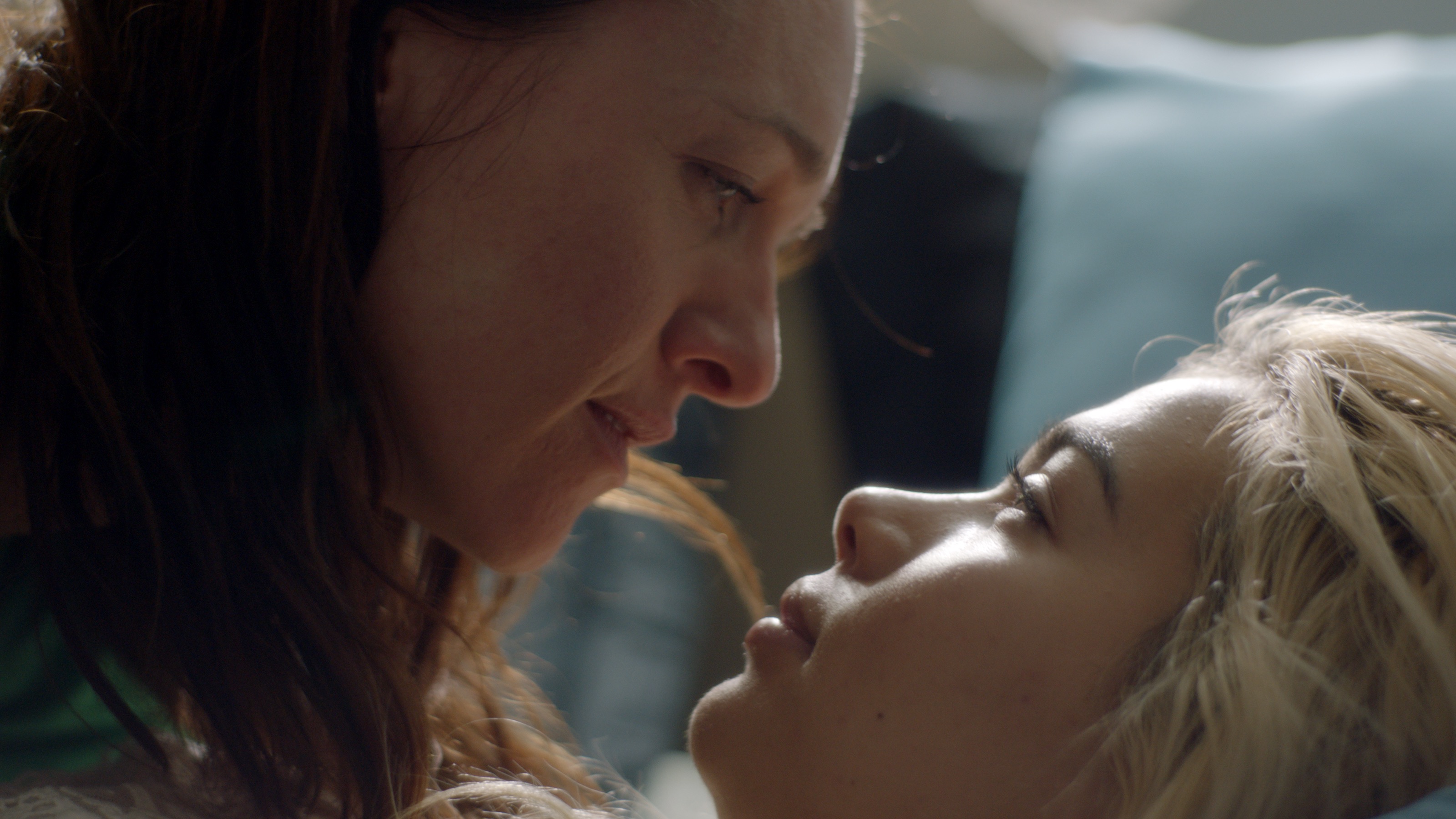
BY GARY M. KRAMER | This year’s edition of NewFest: New York’s LBGT Film Festival features more than 100 shorts, features, and documentaries that showcase international perspectives on queer life.
The festival opens October 19 (7 p.m. at SVA Theatre) with the New York premiere of “Susanne Bartsch: On Top,” a documentary about the “Queen of the Night” and equality advocate directed by Anthony&Alex.
NewFest closes five days later on October 24, with a screening of “Becks,” directed by Elizabeth Rohrbaugh and Daniel Powell. (8 p.m. at Cinépolis Chelsea). This American indie drama has the title character (Lena Hall), a lesbian folk singer, returning home to St. Louis after her girlfriend Lucy (Hayley Kiyoko) cheats on her. Becks’ mother, Ann (Christine Lahti), is an ex-nun, who is trying to accept her daughter’s reckless behavior. She is fine with her being a lesbian, but is less pleased with Becks’ drinking, swearing, and general bad behavior. Becks’ worst decision is embarking on an affair with Elyse (Mena Suvari), a married woman who takes guitar lessons from her. Becks felt lousy about Lucy cheating on her, but she has no compunction about Elyse betraying her husband. Despite treading well-known dramatic territory, and offering few surprises — viewers will be waiting for the lovers to be caught in flagrante delicto — the undemanding “Becks” does feature nice music as well as fine performances by Hall, Suvari, and Lahti.
NewFest has broad international line-up October 19-24
One of the festival’s two centerpieces is the New York premiere of the absorbing but uneven drama “After Louie” (Oct. 22, 7 p.m. at SVA Theatre). Vincent Gagliostro’s film has Sam Cooper (Alan Cumming), a former AIDS activist, facing a stalled artistic career. He has been working more than a decade on a film about William Wilson (David Drake), a friend who died from AIDS, much to the chagrin of his gallerist Rhone (Justin Vivian Bond), and his friends Jeffrey (Patrick Breen), Mateo (Wilson Cruz), and Maggie (Sarita Choudhury). One night, Sam meets Braeden (Zachary Booth), a younger man, and sleeps with him, paying him for the night. Braeden, who is not a hustler, keeps the money, in part because he and his HIV-positive partner Lukas (co-writer Anthony Johnston) need it.
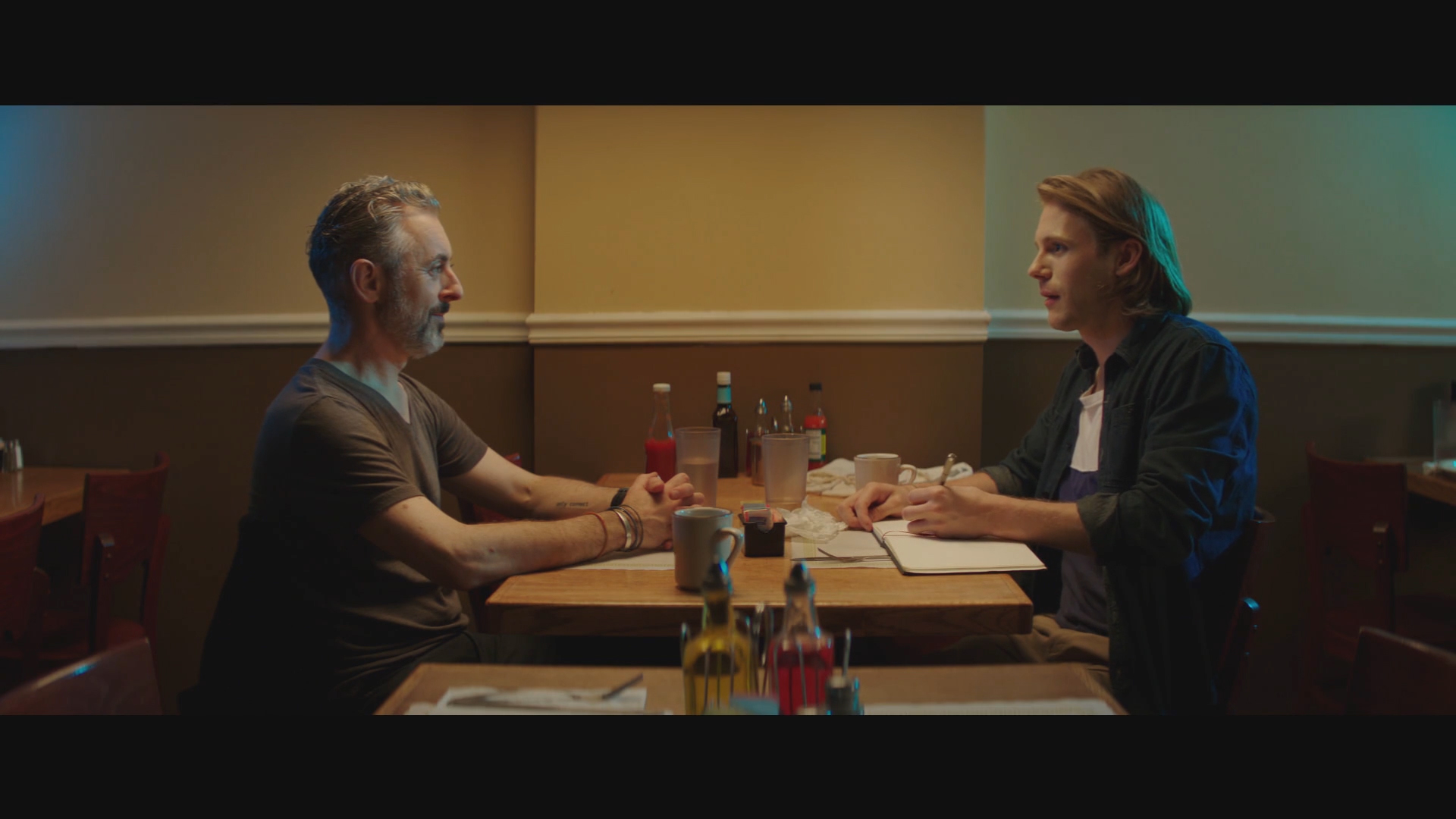
As Sam continues to meet with Braeden for sex, he imparts his activist views on the younger man, whose generation he sees as having benefitted from sacrifices made by folks like William. “After Louie” steers an important dialogue about the battles and progress the gay community has faced and how dramatically things have changed over the decades. But the film is overstuffed with messages that, while important, are imparted in a didactic fashion. At least Cumming’s poignant turn as Sam helps the film over its rough moments.
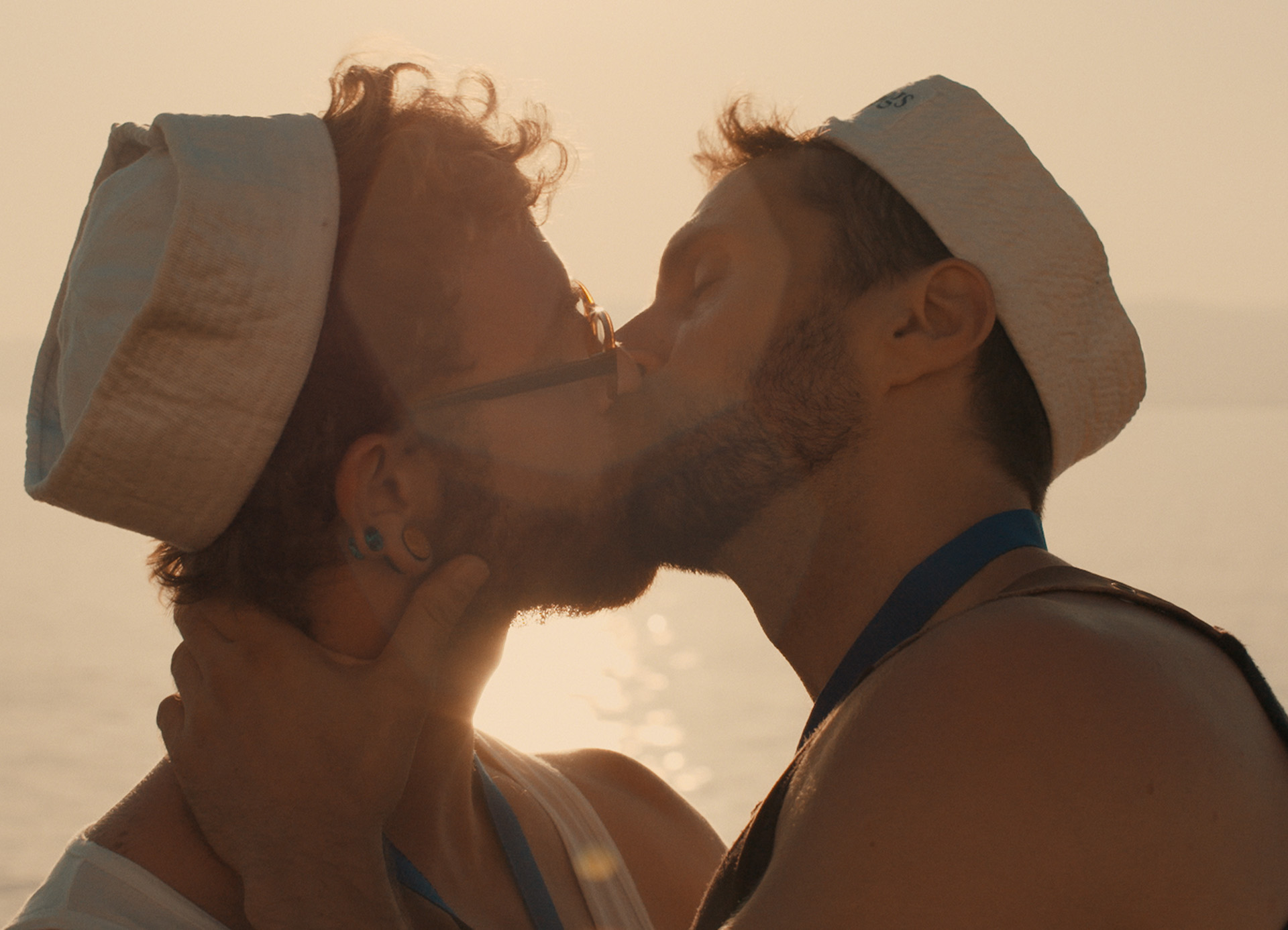
One of the highlights of the fest is the candid and thoughtful documentary “Dream Boat” (Oct. 23, 9 p.m. at Cinépolis Chelsea), directed by Tristan Ferland Milewski. The filmmaker profiles five men on a European gay cruise. The guys reveal their personal insecurities and discuss the homophobia they face at home or at work. “Dream Boat” includes plenty of buff bodies but Milewski has more serious topics in mind, and that is why his wistful doc resonates.
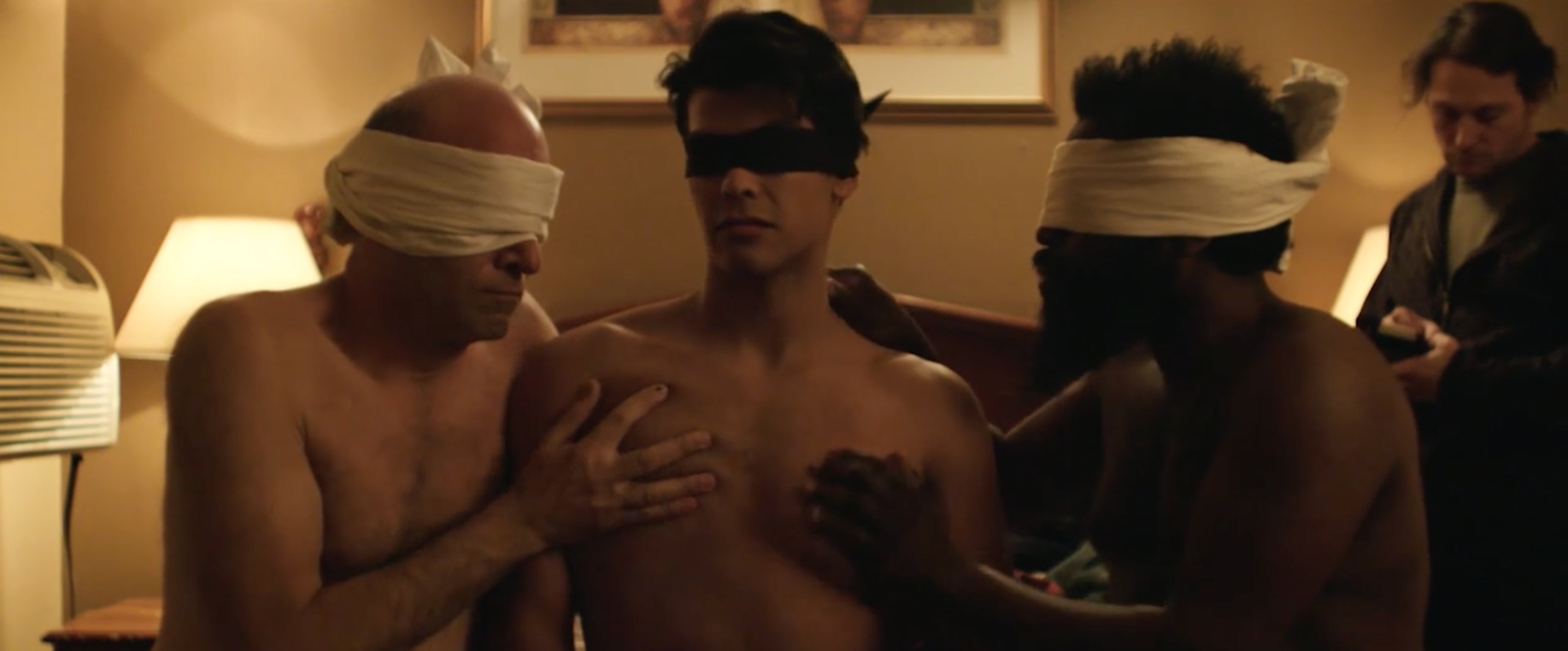
One of the disappointments is Travis Mathews’ ambitious but pretentious “Discreet” (Oct. 20, 9:30 p.m. at Cinépolis Chelsea). Alex (Jonny Mars) returns home to Texas where his mother (Joy Cunningham) informs him that John (Bob Swaffar), a man Alex thought was dead, is actually still alive. Alex says he’s John’s grandson so he can keep company with the old, enfeebled man. The relationship between these characters eventually becomes clear. Until then, a succession of characters, images, and scenes — some featuring gay sex — unfold without much impact. Mathews’ film may reward viewers who put the puzzle pieces together, but most audiences will be bored by this frustrating muddle.
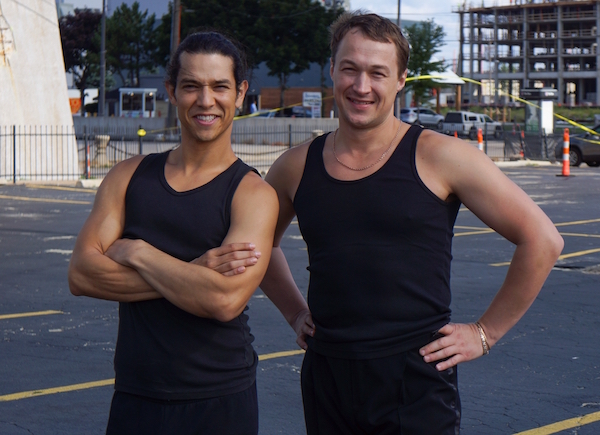
“Hot to Trot” (Oct. 22, 4 p.m. at Cinépolis Chelsea) is a lovely, graceful documentary featuring two same-sex ballroom dancing couples. The film, directed by Gail Freedman, showcases Costa Rica transplant Ernesto Palma and his Hungarian dancing partner, Robbie Tristan, in New York City. The men are poetry in motion, but a health issue sends Tristan back home, which prompts Palma to find a new partner: Nikolai Shpakov. Meanwhile, across the country in the Bay Area, Emily Coles and Kieren Jameson are winning top prizes in the April Follies, a same-sex ballroom dance competition.
Freedman captures the beauty and energy of the dancers as they prepare for the 2014 Gay Games. They practice and push each other to perform. They also deal with conflicts that arise. Palma describes the relationship with his ballroom partner as being “like a fucking marriage — without the fucking.”
Freedman wisely allows viewers to get to know — and therefore care about — all her subjects, who discuss their coming out and family life, as well as health challenges they face. There is thankfully little emphasis on the competition until a nail-biter of a finale for one of the teams at the Gay Games.
“Hot to Trot” shows how dancing provides inner strength to these men and women. Each developed a sense of pride and self-confidence that allowed them to become not just better dancers, but better people, as well. And that’s why this fine doc is such a crowd-pleaser.
A compelling Brazilian import, “The City of the Future,” (Oct. 22, 5:15 p.m. at Cinépolis Chelsea) has Gilmar (Gilmar Araujo) wanting to marry his boyfriend Igor (Igor Santos) but also being a father to the child he conceived with Milla (Milla Suzart). This arrangement upsets many folks in the trio’s rural town of Serra do Ramalho, including Igor’s mother, who disapproves, and Milla’s family, who stop speaking to her. Igor also faces homophobia from the cowboys at the local horse farm.
“The City of the Future” is a slow, but intriguing tale about how these queer characters — Milla is seen being affectionate with a female friend in an early scene — care less about what others think and more about being their true selves. The film, co-directed by Marília Hughes Guerreiro and writer Cláudio Marques, does not break new ground, but it features a strong sense of place and three attractive leads.
Another film about family is “One Last Thing,” (Oct. 20, 6:30 p.m. at SVA Theatre), a low-budget American drama about Dylan (Wendell Pierce), a dentist in Orlando who finally locates the daughter he has been looking for 25 years. When he travels to Brooklyn to meet Lucy (Jurnee Smollett-Bell), Dylan discovers that she likes coffee, works in a bookstore, is a lesbian, and has a serious health issue. While the estranged father and daughter reconnect through handwritten letters and visits, a series of dramatic situations soon complicate their reunion.
“One Last Thing” does not pay much attention to Lucy’s lesbianism, which may be a good thing, but it treads heavily into storylines that are better handled in soap operas. (One plot twist is so expected it can hardly be called a twist). Pierce delivers a low-key performance that elevates this stagy and sudsy film. Smollett-Bell is fine in support, but both actors deserve better.
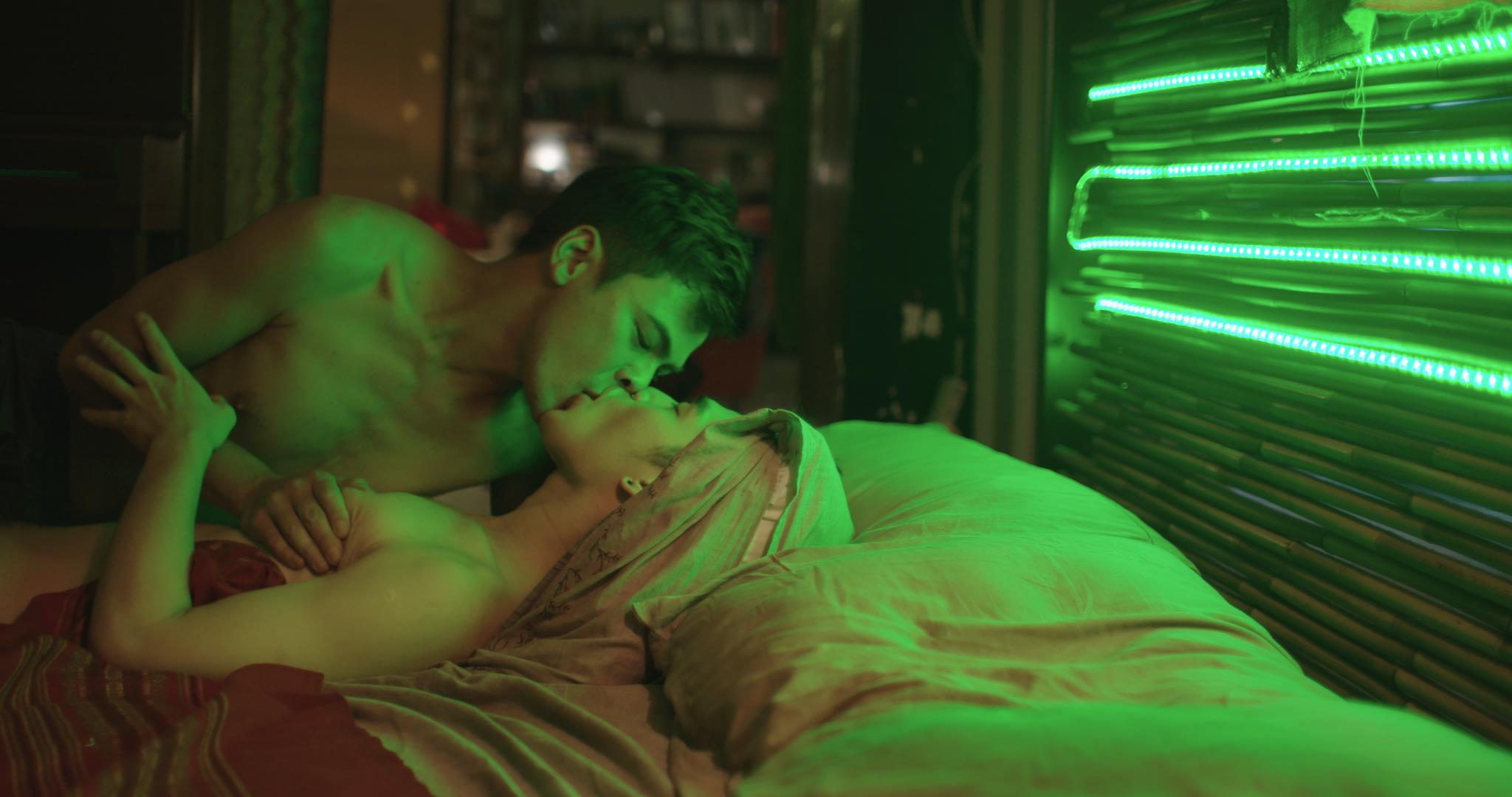
Also depicting the fraught relationship between children and their parents is the Taiwanese/ Philippine co-production, “Tale of the Lost Boys” (Oct. 21, 12:15 pm at Cinépolis Chelsea). Alex (Oliver Aquino) is a Filipino visiting Taipei. One night, he meets Jerry (Soda Voyu), a bartender and medical student. The two strangers become fast friends after Alex, a mechanic, fixes Jerry’s car. When the pair head out on a road trip to visit Jerry’s traditional Atayal family, the two men talk about their family issues. Jerry is afraid to come out to his family, who expect him to marry and become a tribal leader, bringing his medical knowledge back to help their community. Alex, who is straight, claims his parents are dead, but in reality that’s just a way of him avoiding drama with his estranged mother. “Tale of the Lost Boys” is crudely made, but the film is a tender, engaging bromance in which each man helps the other to find the means of living their true selves.
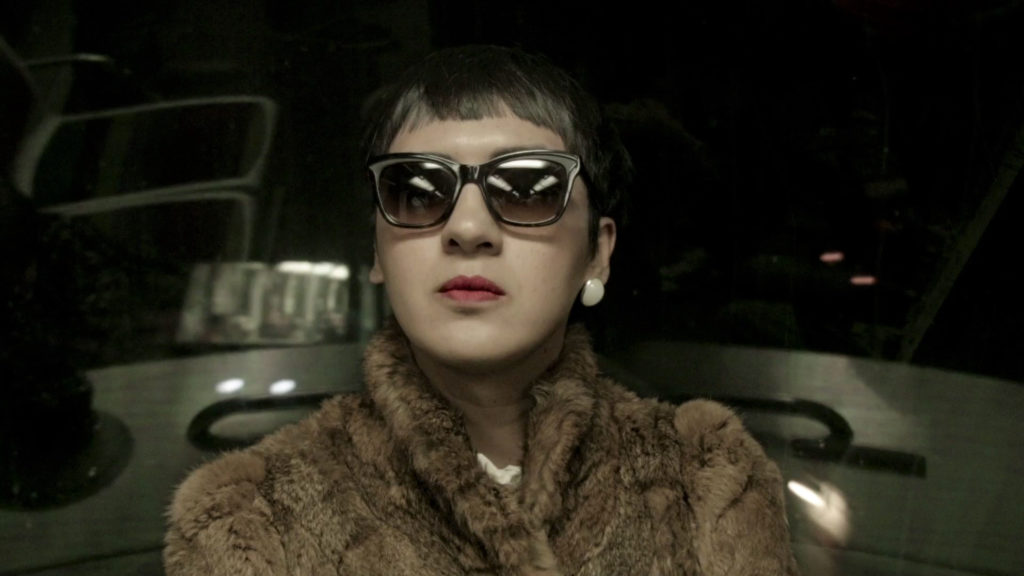
“The Devil’s Magnificent” (Oct. 21, 9:45pm at Cinépolis Chelsea) has Manu (Manu Guevara), a Chilean transgender woman, living in Paris and wanting to return home. She ruminates about love and sex, and while she talks unsentimentally about romance, she has a series of encounters that reveal otherwise. First, she rebuffs her friend Daniel (Daniel Larrieu), who wants to marry her so she can stay in France, and then meets Mathias (Vicktor Philip), a Swedish DJ, with whom she spends the night. Manu’s story offers nothing particularly new regarding trans lives; she is accosted on the street and faces adversity from those who do not accept her. There are too many scenes of her dancing in the streets and parks of Paris, meant to signify her free spirit, and the film feels more self-indulgent than satisfying.
The “Boys Shorts” program (Oct. 21 at 11 a.m. at Cinépolis Chelsea; Oct. 23 at 2:30 pm at the LGBT Community Center) is a mixed bag. “Beard” nicely captures the anxiety of Gabe (Drew Michael Gardner), a closeted teen who wants his feisty best friend, Chrissy (Jordan Spiller), to pose as his girlfriend. Their relationship features all the typical gay guy/ straight girl tropes, but this short has some clever moments and considerable heart.
Less impressive is “Two Fish,” about Max (Aurelio De Anda) who gets romantic with his buddy Taylor (Jeremy Howard). The film doesn’t invest viewers enough in its characters to feel for their awkward situation. Also disappointing is “Billy’s Blowjobs,” which features out actor Wilson Cruz as the title character who gives a monologue while being serviced by an anonymous stranger. When Billy meets Paul (Jason Caceres), a voyeur, he makes a stronger connection.
Perhaps the best short in the program is the documentary entry, “Bayard & Me,” Matt Wolf’s terrific portrait of the gay civil rights leader Bayard Rustin and his partner Walter Naegle. The story of their relationship is as inspiring as it is surprising.
“Time is the Longest Distance,” has Adam (Andreas Damm) visiting his father Jack (Philip Levy) so he can invite him to his wedding to Henry (Benjamin I. Myers). However, Jack has Alzheimer’s, and does not recognize Adam in this well-meaning, but predictable drama. “Something New” is an amusing comedy about the hapless Jonah (Ben Baur) trying to date again after a breakup. His experiences, which include depression sex with a Grindr boyfriend, cause confusion, which provides the comedy. The program’s other entry, “Dinner with Jeffrey” was unavailable for preview.
NEWFEST: NEW YORK’S LGBT FILM FESTIVAL | Oct. 19-24 | Cinépolis Chelsea, 260 W. 23rd St. | SVA Theatre, 333 W. 23rd St. |LGBT Community Center, 208 W. 13th St. | newfest.org/film/newfest2017































